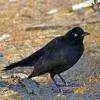-
Welcome to Celiac.com!
You have found your celiac tribe! Join us and ask questions in our forum, share your story, and connect with others.
-
Celiac.com Sponsor (A1):
Celiac.com Sponsor (A1-M):
-
Get Celiac.com Updates:Support Celiac.com!
Anyone With Ncgs & Ibs-C? How Are You Coping?
-
Get Celiac.com Updates:Support Celiac.com:
-
Celiac.com Sponsor (A17):
Celiac.com Sponsor (A17):
Celiac.com Sponsors (A17-M):
-
Recent Activity
-
- Eldene posted a topic in Sports and Fitness0
Sore muscles
I walk fast for fitness, 4 to 6 km per day. I am also 74 years old. Apart from the Celiac challenge, my lifestyle is healthy. I had a sciatiac nerve pinching under my one foot, with inflamation in my whole shin. It was almost cured, when the other shin started paining and burning. I do stretches, use a natural cooling gel and rest my feet. Can Celiac... -
- sc'Que? commented on Jefferson Adams's article in Latest Research1
How Xylitol and Gluten Change Human Gut Microbiota and Biofilm
Not sure why the conclusion seemed to omit Xylitol from criticism.- biofilm
- celiac disease
- (and 8 more)
-
- LovintheGFlife posted a topic in Traveling with Celiac Disease0
Trader Joe's grocery prodcuts
I recently started shopping at a nearby Trader Joe's store. I was surprised at the number and variety of (healthy) gluten-free options sold there. I must admit their low prices are also quite tempting. However, I am curious as to the labeling on all their packages. While none of their products are certified as gluten-free, many are identified as 'GLUTEN FREE... -
- knitty kitty commented on Scott Adams's article in Spring 2024 Issue11
Exploring Other Causes of Villous Atrophy Beyond Celiac Disease
@normagain, There's a difference between Small Intestinal Bacterial Overgrowth (SIBO) and Candidiasis (Yeast Infection). It's possible to have one or the other or both. Celiac Disease causes damage to the small intestine. The SIBO occurs because the bacteria take advantage of this damage to move in and multiply. Same with Candida. SIBO is... -
- Beverley Ann Johnson posted a topic in Celiac Disease Pre-Diagnosis, Testing & Symptoms0
Gluten challenge
HI, my doctor suggested one week of consuming gluten before blood tests. I have been gluten free for 3 years. Has anyone been through this and will I get exact results after one week of consuming gluten? I don't even know if I can do this, if I get sick I am not sure if I can continue, any suggestions?? Thanks in advance.
-







Recommended Posts
Archived
This topic is now archived and is closed to further replies.